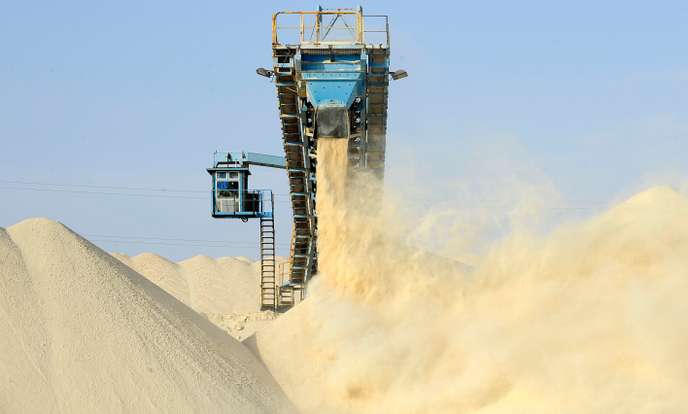The North Africa Post
There is no exaggeration in saying that Morocco will play an increasingly important role in the world’s food security as the country sits on the globe’s largest phosphates deposits, key to the fertilizers’ industry.
Modern agriculture has become more than ever dependent on phosphorus derived from phosphate rock, a non-renewable resource.
Morocco as the country with about 75% of world phosphates reserves will thus become at the heart of phosphorus supply.
“Phosphate use has quadrupled in the last 50 years as the global population has grown and the date when it is estimated to run out gets closer with each new analysis of demand, with some scientists projecting that moment could come as soon as a few decades’ time,” said the Guardian in an analytical article.
Phosphates as a mineral is set to become the world’s most valuable mineral in the few decades to come.
The European Commission declared phosphate a “critical raw material” in 2014, i.e. an essential resource with significant risk to supply.
Morocco’s fertilizers industry
Morocco’s OCP, a global leader in the market for phosphate and its derivatives, which has been a key player in the international market since its founding in 1920, reported a 19 percent rise in 2018 full-year net profit to 5.4 billion dirhams ($562.79 million).
The group has recently signed an €80 million deal with Finland’s Outotec to build a sulphuric acid plant, an investment, which comes only few days after the Moroccan phosphates exporter signed a €255 million agreement with Spain’s Intecsa to build two similar plants.
The new plants will help OCP maintain leadership in the phosphates-based fertilizers market especially in Africa.
OCP, which is currently producing customized fertilizers specific to the needs of different African soils from its chemical plants in Jorf Lasfar, is also planning large scale investments in Africa.
In Ethiopia, the group already launched a plant that will be operational in the next two or four years. The plant required an investment of about $3 billion and is expected to export raw material for the production of fertilizers to the region.
The group is planning a fertilizer plant in Nigeria and also in Ghana where feasibility studies are underway.
OCP is also gearing efforts to improve the process of agricultural productivity in Africa through helping farmers and establishing soil maps.
POSTED BY NORTH AFRICA POST
North Africa Post’s news desk is composed of journalists and editors, who are constantly working to provide new and accurate stories to NAP readers.







